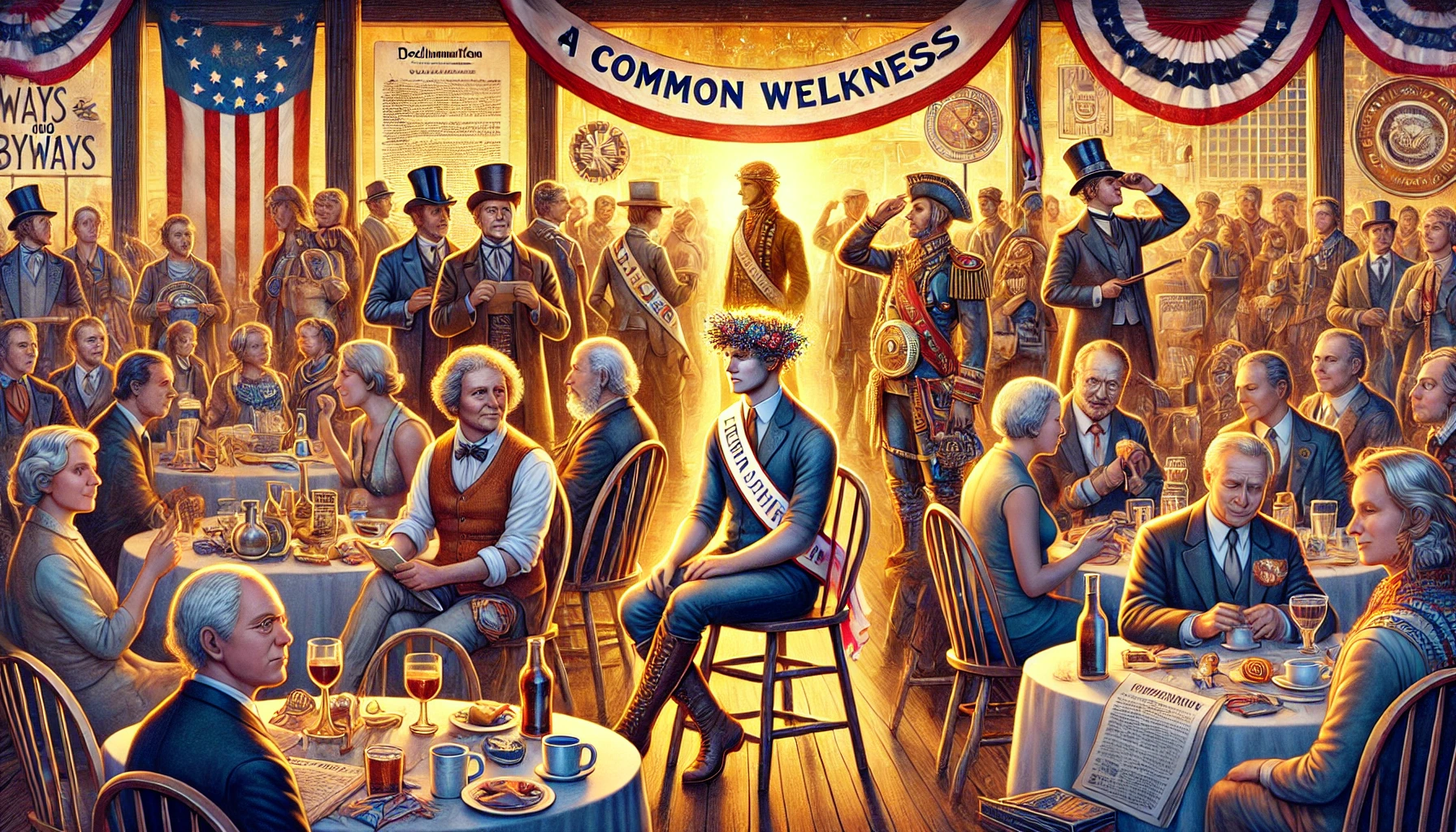Chapter 23 — A Common Weakness
byChapter 23 – A Common Weakness explores the deeply embedded human urge to feel seen, honored, or elevated, regardless of cultural or political changes. In America, where nobility was explicitly rejected by the founding fathers, the need for distinction didn’t disappear—it simply found new costumes. From early institutions like the Order of the Cincinnati, which tried to invent a kind of hereditary elite, to modern informal title inflation, this craving has taken countless forms. Washington’s ideal of a society free from such vanity was noble, but ultimately outmatched by human nature. The moment traditional titles were abolished, Americans began inventing replacements—symbols that offered the illusion of social hierarchy without the structure. Even in a democracy, people will find ways to rank themselves.
This tendency is most vividly captured in the way small-town figures accumulate honorifics, often self-styled and loosely earned. Men who’ve never served in battle might be referred to as “Colonel,” while others are routinely called “Judge” long after leaving the bench—or even without ever sitting on it. These names aren’t questioned but are instead embraced, adding a layer of reverence to otherwise unremarkable lives. Women, too, eagerly participate in this title inflation, attaching their identities to their husbands’ professional roles. Hence, a woman might insist on being known as “Mrs. Assistant Surgeon-General” rather than simply “Mrs. Smith.” These affectations, though absurd, fulfill a psychological need to seem important. They also act as social signals, subtly placing one above the common crowd.
Chapter 23 – A Common Weakness doesn’t just laugh at these pretensions; it examines them as a reflection of deeper human insecurities. In a world where everyone is theoretically equal, people often scramble for micro-distinctions that set them apart. This results in a culture rich in invented statuses—from inflated business titles like “Chief Visionary Officer” to academic credentials that fill multiple lines on a business card. Even clergy and educators aren’t immune, often listing every degree and certificate earned, not as indicators of expertise, but of importance. Foreigners witnessing these behaviors often express confusion or amusement, puzzled by the American obsession with creating informal ranks. Yet the impulse itself is not uniquely American—it is universal, simply more theatrical in democratic societies where formal aristocracy is absent.
Beyond names and letters, this obsession with prestige manifests in fashion, speech, and travel. People boast of having been “present at court” or of dining at embassies, subtly crafting a narrative of special access. Decorative pins and sashes, sometimes modeled after real military or noble insignia, are worn during travel or at formal events to project authority or worldliness. Some individuals even invent genealogies or alter surnames with hyphens to appear descended from nobility. This performative behavior often goes unnoticed or unchallenged, as society, in many ways, rewards the confident display of status. But beneath the surface lies a common emotional vulnerability—the fear of being average, of blending into the crowd. It is this fear, more than vanity alone, that fuels the spectacle.
Chapter 23 – A Common Weakness highlights that while ambition can lead to growth, status-seeking often leads to posturing without substance. It invites readers to reflect on whether they seek recognition for who they are or for what they appear to be. As amusing as these social games are, they expose a fundamental truth: people long to be acknowledged, even if the recognition comes from a title with no real merit. This chapter doesn’t condemn that longing—it recognizes it as part of being human. Still, it encourages a critical eye toward the lengths we go to in order to satisfy it. When identity becomes performance, authenticity is often the first casualty.
Modern parallels make this theme especially relevant. In the era of social media, status has become more visual and accessible—but also more fragile. Influencers, job seekers, and even ordinary users curate their profiles like digital resumes, packed with accolades, affiliations, and fabricated exclusivity. Filters, followers, and bio descriptions are the new honorifics, and “verified” symbols mimic modern-day coats of arms. This digital version of title inflation shows how little the need for recognition has changed—only the tools have evolved. It reveals that the same weakness satirized in 19th-century salons now plays out on global platforms. What once involved a calling card or formal dress now requires pixels and algorithms, but the motivation remains the same.
Ultimately, Chapter 23 – A Common Weakness offers a humorous yet honest reflection on this universal trait. It suggests that the pursuit of prestige, when untethered from genuine achievement, becomes self-parody. However, when channeled wisely, the desire for distinction can also inspire meaningful contribution. The challenge lies in knowing the difference. Through satire and observation, the chapter doesn’t ask people to abandon their aspirations—it simply asks them to examine what those aspirations are built upon. Recognition, after all, becomes truly valuable only when it reflects something real. Otherwise, it’s just another costume worn to a masquerade.


